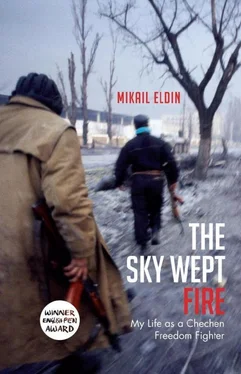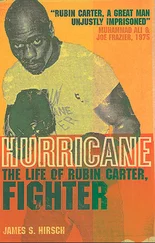Konstantin Balmont (1867–1942) was a Russian Symbolist poet. These lines are from his sonnet, ‘The Scorpion’.
Kontraktniki, or contract soldiers, are professional servicemen who serve in the Russian Federation military on a contractual basis.
The notorious camp PAP-1 (Passenger Bus Garage No. 1) was located in the Leninsky district of Grozny. It was in operation from February 1995 until the end of the first war.
Situated in the high mountains near the border with Ingushetia, the village of Bamut became the site of a battle that lasted for fourteen months. Chechen singers wrote songs celebrating the Battle of Bamut.
In March 2000, a major battle took place in Komsomolskoye, with the Chechen resistance suffering heavy losses. Large numbers were killed, wounded and taken prisoner. ‘White Swan’, or Solikamsk Prison, is a Russian penitentiary in the Urals.
General Pulikovsky delivered an ultimatum giving the resistance fighters forty-eight hours to evacuate the captured city. Otherwise, the general promised to use all available means to liberate the city by force.
In July and August 1999 to support the Dagestani guerrillas.
A district centre in Dagestan.
Vladimir Putin was appointed Acting Prime Minister on 9 August 1999 and became Acting President on 31 December 1999.
The three Yamadayev brothers – Sulim, Ruslan, a former deputy in the State Duma of Russia, and Dzhabrail, all decorated Heroes of the Russian Federation – were former field commanders who in 1999 went over to the Russian side.
On 4 October 1993 Russian troops, with tanks and special forces, stormed the Russian parliament building. The Speaker of the Russian Supreme Soviet, Ruslan Khasbulatov, and the Vice President, Aleksandr Rutskoy, were arrested and later pardoned by Boris Yeltsin.
‘Angel’ was the call sign used by Hamzat Gelayev. See note 5 5 Hamzat Gelayev was a prominent Chechen field commander. From 1995 he was Brigadier General in the Chechen Armed Forces. In February 2004 he was killed in action.
.
Shamil Basayev.
The battle for Grozny lasted from November 1999 until February 2000.
According to the human-rights organization Memorial, on 5 February 2000, in just one small village, Novye Aldy, on the outskirts of Grozny, Russian soldiers killed over fifty civilians during a ‘cleansing operation’.
It is worth stressing that the Russian General Staff had no operational plan called Wolf Pit, as their generals subsequently claimed. If such a plan had been carried out, the losses during the breakout would have been 30 or 40 per cent of the men, if not more, given that for most of the way we were moving through occupied territory. In reality, though, we lost less than 5 per cent during the entire two-week march towards the mountains, which reflects the flawlessness of the operation from a military perspective. The Russian generals, as always, were simply trying to explain away their incompetence retrospectively. They have traditionally been great strategists of their battles after the event.
The route for the breakout from Grozny ran through the following villages: Alkhan-Kala, Zakan-Yurt, Shaami-Yurt, Katar-Yurt and Gekhi-Chu in western Chechnya. From Gekhi-Chu the route swerved sharply into the mountain forest, which extended all the way to the mountainous Shatoy district, where we arrived from 12 to 14 February 2000.
Shali is a town in eastern Chechnya; at this time it was under pro-Moscow control. It had a large market where you could purchase food and essentials.
The battle of Komsomolskoye took place in March 2000. The Chechens suffered heavier losses in this battle than in any other during the first and second wars.
In the Russian Federation, all citizens were required to have internal passports officially recording their place of residence. Any Chechen caught without the right stamps in his passport would immediately arouse suspicion. Legalization was essential for freedom of movement, as the Chechens could be asked for their ID in random swoops or at checkpoints.
Kostroma is a city in Russia.
This journey is the return to Chechnya of Hamzat Gelayev’s guerrilla unit. Until this time, he was based in the forests of eastern Georgia.
Akhmad Kadyrov, who changed sides and became President of the Moscow-appointed Chechen administration. He was the father of Ramzan Kadyrov, who succeeded him as President.
In Russia, serfdom was abolished only in 1861.












